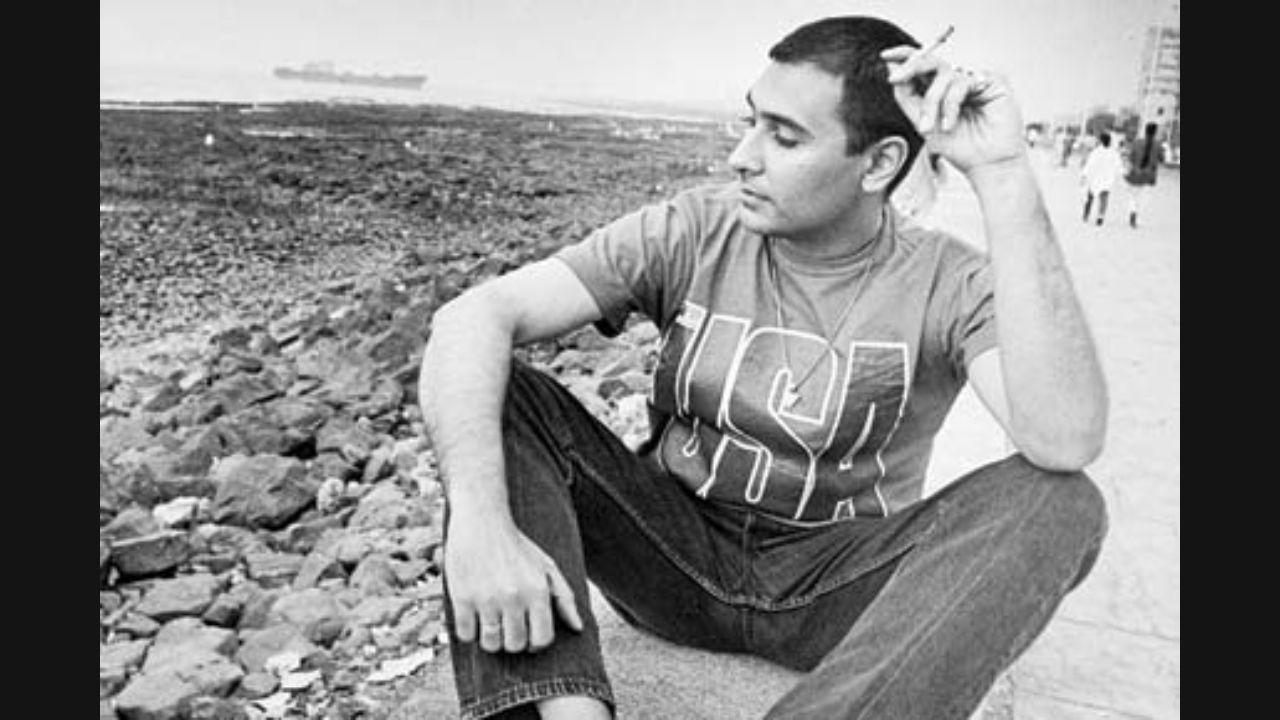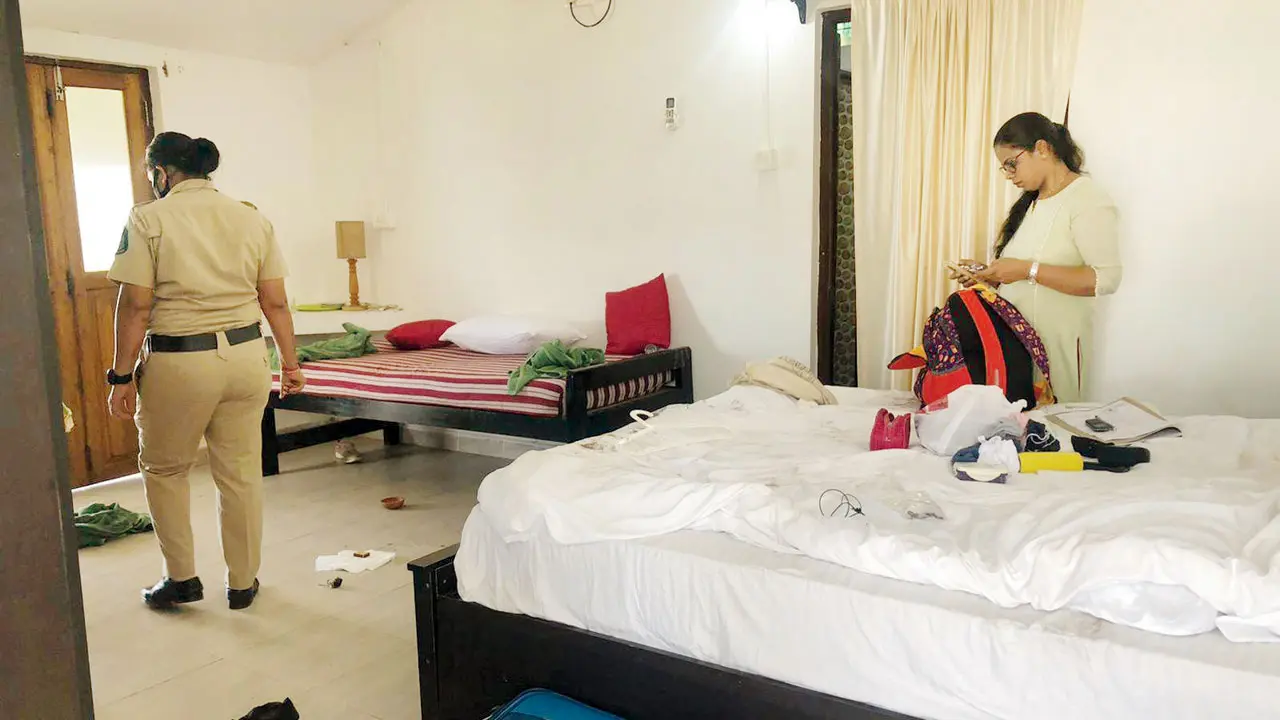LGBTQIAP Plus History of India (@lgbthistoryindia), an account run by a doctor from Kolkata, aims to throw light on the queer community’s rich past. For Pride Month and International Archives Week, the page's curator describes his process and talks about how historical material existed but remained neglected over time

Late Mumbai-based filmmaker Riyad Wadia (in pic), who lived with HIV and passed away in 2003, was the subject of Anindya Kar's first post on his Instagram page 'LGBTQIAP Plus History of India' in 2016. Photo: File pic
Anindya Kar knows, painfully, that “history keeps repeating itself”. For instance, the book he is currently reading – Siddharth Dube’s ‘An Indefinite Sentence: A Personal History of Outlawed Love and Sex’ – mentions that gay rights lawyer Siddhartha Gautam and the author were thrown out of a Delhi pub in 1989. Similarly in the late 2010s, Kar’s gay friends had been asked to leave from a club in the same city. “We never acknowledge or correct ourselves. We never change,” rues Kar, who runs the Instagram page LGBTQIAP Plus History of India (@lgbthistoryindia).
ADVERTISEMENT
Gautam, a Yale alumnus who was one of the early members of the ‘AIDS Bhed Bhav Virodhi Andolan’, and one of the authors of the ‘Less Than Gay: A Citizen's Report on the Status of Homosexuality in India’, is the subject for a series the account is doing for Pride month. The group had been among the first to launch a legal fight for the rights of the queer community. “Siddhartha’s story is one of those inspirational and amazing facts I stumbled upon while looking for content for the page,” says Kar, an ally who is also assistant director and chief medical officer at the Advanced Neuropsychiatry Institute in Kolkata.
View this post on Instagram
He picks out less-known or forgotten episodes from queer history which highlight the progress that has been achieved and show the way forward. Take the example of an ‘All-India Hijra Conference’ which was held in Agra in the year 1981, where around 50,000 members of the transgender community from both India and Pakistan had come together. Or the now-defunct Pravartak, an early gay magazine that ran in India in the 1990s, which had a popular classified column where queer people used to write letters to each other through a P.O. Box number mentioned in that space.
“History owes an apology to the members of this community [LGBTQIA+] and their families,” justice Indu Malhotra, who was part of a five-judge constitution bench that delivered the Supreme Court verdict decriminalising Section 377, had said in 2018. However, there isn’t enough documentation of India’s LGBTQIA+ history. Kar had noticed this back in 2016 and that was one of the reasons he had started the Instagram page then.
“I was writing a paper on LGBTQIA+ health issues and I was searching for an Indian perspective and history in that matter,” says the 29-year-old. As he started researching, he came across many rare facts about the Indian queer community. That is when the idea came to his mind that it should be documented. “The concept of pride comes from the US and we celebrate Pride month because of the Stonewall Riots in 1969. However, I thought we need to present the events of the LGBTQIA+ community in India, and that’s how people will get to know more about our history and will take pride in that as well,” he says.
His first post was about late Mumbai-based filmmaker Riyad Vinci Wadia. He was openly gay and belonged to the illustrious Wadia family, the owners of the yesteryear production company Wadia Movietone. Back in the day, their action films starring Fearless Nadia, who belonged to the same family, were extremely popular. Wadia was living with HIV and had died in 2003. “When I was researching for my paper, I came across this social media page called AIDS memorial. But the page had received a lot of criticism due to the lack of representation from India and other ethnic minorities,” he says. “Since I was writing on the topic of HIV, I started looking for gay men here who had died of the disease and that’s when I came across Riyad’s story. That is why I chose his story to be my first post.”
The aim of the page is to bridge the information gap about the queer community with material that exists but was forgotten over the course of time. From highlighting how Deepa Mehta’s film ‘Fire’ – one of the first mainstream movies to show lesbian love story – met with protests from various political parties for the portrayal of same-sex relationship to sharing the harrowing experience of AIDS activist Dominic D'Souza for being HIV positive, the page throws light on the difficult journey of the queer community in India.

Dr Anindya Kar
His posts consists of notes, texts, videos and news articles highlighting important events and personalities that helped shape the LGBTQIA+ movement in the country. It includes ancient as well as contemporary histories, from both the Indian population and diasporas, and even depictions of queerness from different cultures and mythologies. Speaking about the process of curating his posts, he says, “I look at what the current discussion or news is about. For example, if there is a debate about same sex marriage, I would post something about Indians who have experienced it,” he says.
Though his research is mostly dependent on verified websites, news articles, and books, Kar says that most of the earlier information he had on the queer community was through conversations he had with his friends from the LGBTQIA+ community.
Looking back, Kar says there is definitely much more awareness about the community now compared with when he started his page in 2016. “When I started, my goal was to speak against Sec 377. After the decriminalisation order, I have seen that there is more curiosity and genuine concern to learn and understand the community better,” he says. His vision for the future of this page is to organise an exhibition of the information he has gathered, once the situation is better in the country. The money the exhibition fetches, Kar wants to utilise to help improve mental health and HIV-related medical facilities for the LGBTQIA+ community.
Also Read: 'Our archives are memories of our human, institutional, and national progress in the global sphere’
 Subscribe today by clicking the link and stay updated with the latest news!" Click here!
Subscribe today by clicking the link and stay updated with the latest news!" Click here!







